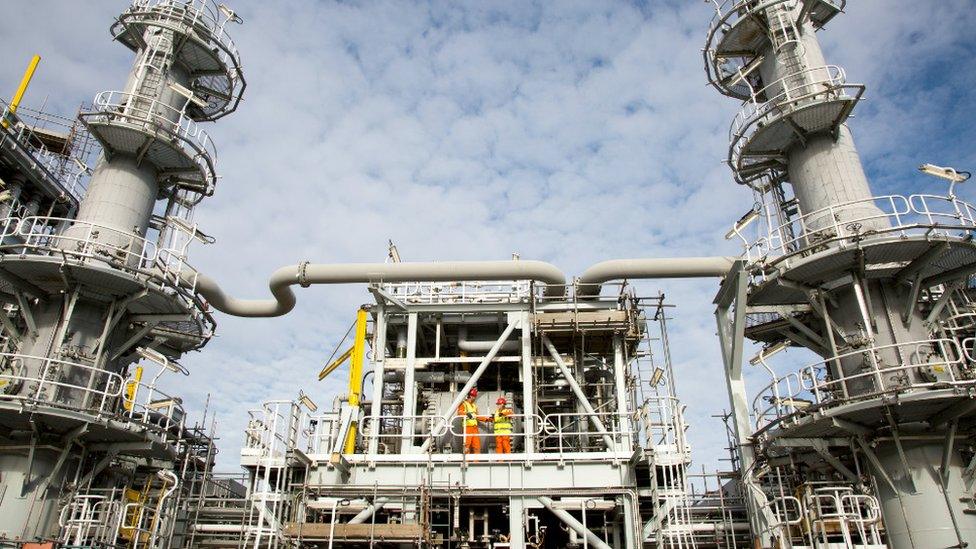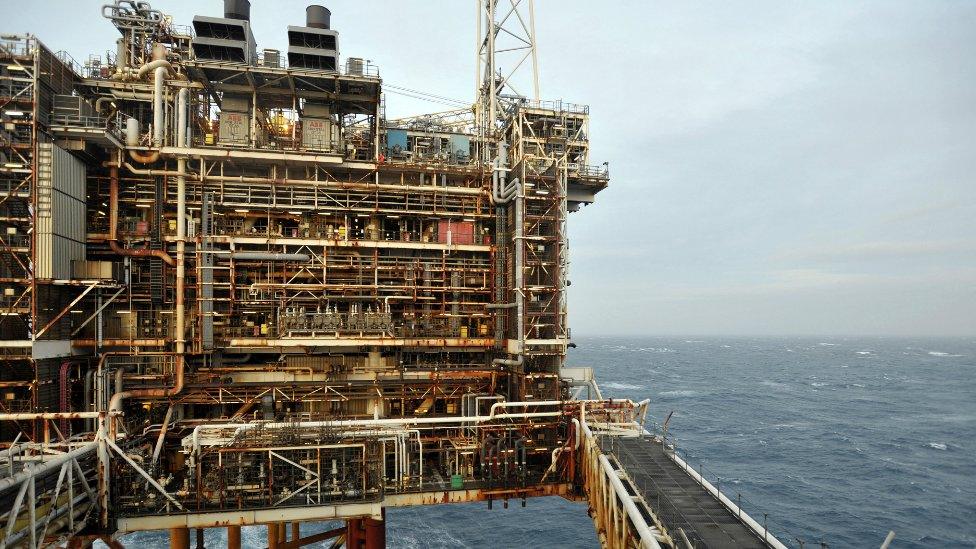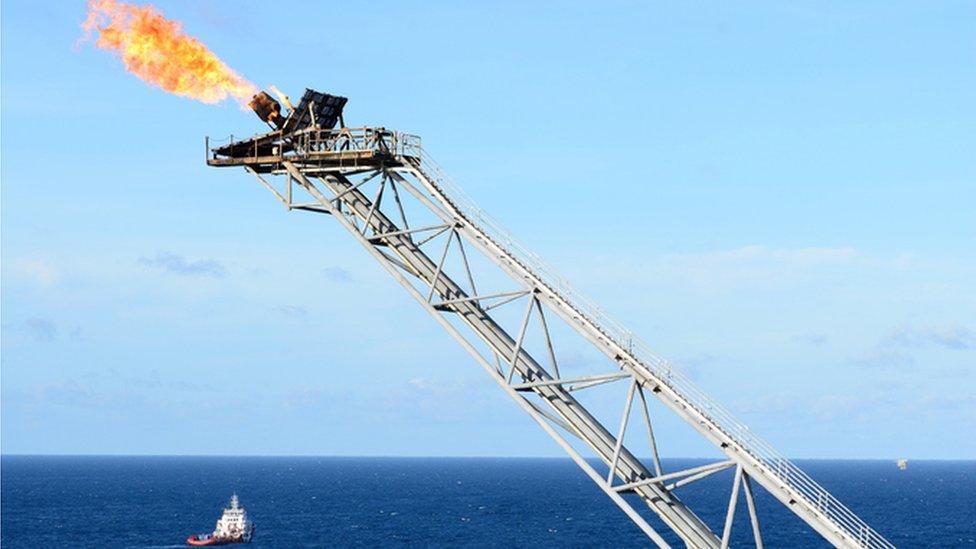Oil and Gas Authority study reveals project overspends
- Published

Offshore oil and gas projects over recent years were badly delayed and went, on average, a third over budget, according to the industry regulator.
The Oil and Gas Authority (OGA) has now called for operators to bring costs down with better planning and co-operation between firms.
The review covers the period since 2011 when capital investment averaged about £12bn each year.
It looked at 58 projects, covering three-quarters of the total spend.
The capital investment figure was much higher than average during part of the period studied, as firms took advantage of the high oil price to develop new fields and extend existing ones.
Realistic budgeting
The investigation found less than 25% of projects were delivered on time. The average project went 35% over its initial budget. Four of the projects more than doubled in cost.
One cost nearly £500m, after almost trebling in budget, and it is still is not complete.
Another cost £4.5bn, after going more than a third over budget. The report does not link the findings with specific named projects.
Nine of the projects were delayed by at least two years. It found that half of projects did not deliver on what they set out to do in their field development plans.

The oil industry often faces volatility in costs
The review concluded there was no link between problems arising and the scale or complexity of the project, but that delays and costs increased due to the way in which projects were approached.
Among the lessons learned was the need to define projects before they started, and to be more realistic about budgeting, with better recognition of the skills of the project manager.
Firms are being told they should work together as teams. Contracts should be nailed down early, and accountability should be clear. It is also pointed out that it is best to keep projects as simple as possible.
The oil and gas industry suffers from more volatile costs than others, reflecting the volatility of the oil price. Rental costs for drilling rigs and other specialist equipment can soar at times when a lot of spending is under way, and they slump at other times.
Leadership challenge
Since the oil price began its fall in mid-2014, projects have become more predictable on timing and on cost. The report said there were only 10 major projects now under way.
The biggest overruns have been for floating production platforms. Development of brownfield drilling sites has also been more problematic than subsea projects and putting new platforms in place.
Gunther Newcombe, operations director at the OGA, said investment in recent years had been important to the whole economy, supporting thousands of jobs.
"There are encouraging signs that the ability to deliver projects in line with cost and schedule commitments has been improving recently," he said.
"This is aligned to the effort we have seen the industry making in the areas of production efficiency and operating costs over the last 18 months."
Chris Claydon, chief executive of the Engineering Construction Industry Training Board, said: "Making real change will come down to people, culture and behaviours.
"To make the step change necessary to improve project performance will require innovative leadership and a truly collaborative approach. This thought-provoking report highlights how much there is still to do".
- Published20 February 2017
